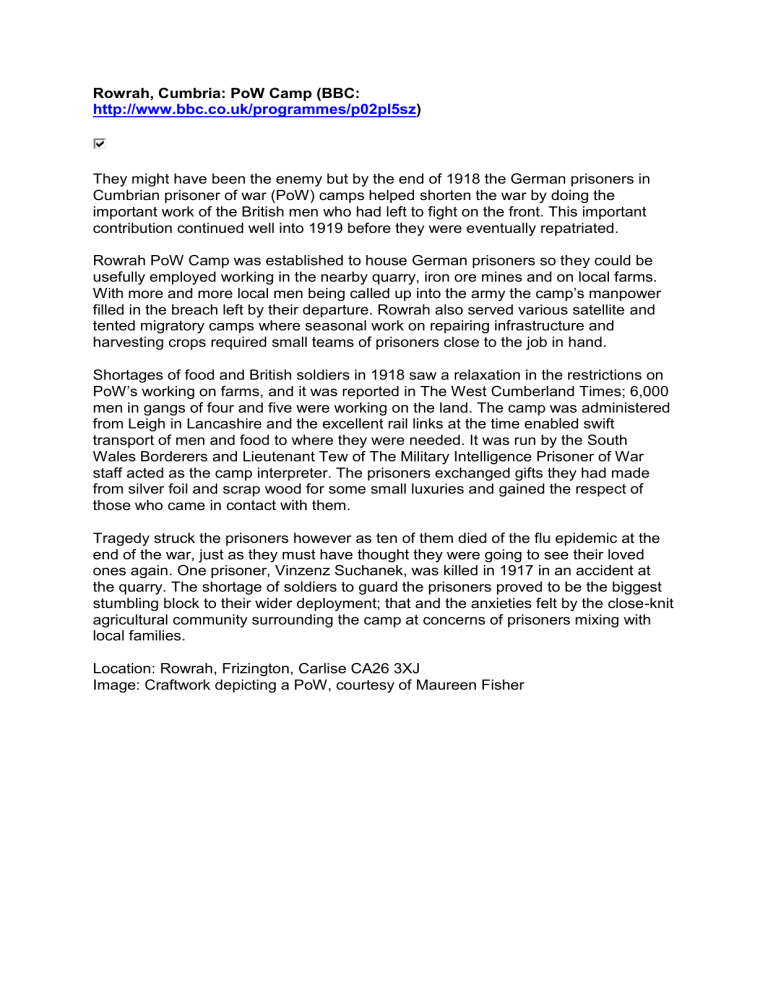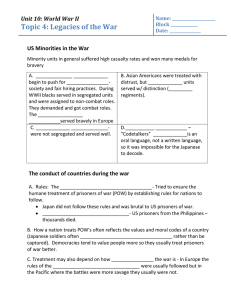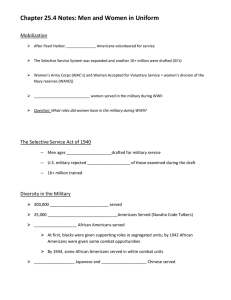
Rowrah, Cumbria: PoW Camp (BBC: http://www.bbc.co.uk/programmes/p02pl5sz) They might have been the enemy but by the end of 1918 the German prisoners in Cumbrian prisoner of war (PoW) camps helped shorten the war by doing the important work of the British men who had left to fight on the front. This important contribution continued well into 1919 before they were eventually repatriated. Rowrah PoW Camp was established to house German prisoners so they could be usefully employed working in the nearby quarry, iron ore mines and on local farms. With more and more local men being called up into the army the camp’s manpower filled in the breach left by their departure. Rowrah also served various satellite and tented migratory camps where seasonal work on repairing infrastructure and harvesting crops required small teams of prisoners close to the job in hand. Shortages of food and British soldiers in 1918 saw a relaxation in the restrictions on PoW’s working on farms, and it was reported in The West Cumberland Times; 6,000 men in gangs of four and five were working on the land. The camp was administered from Leigh in Lancashire and the excellent rail links at the time enabled swift transport of men and food to where they were needed. It was run by the South Wales Borderers and Lieutenant Tew of The Military Intelligence Prisoner of War staff acted as the camp interpreter. The prisoners exchanged gifts they had made from silver foil and scrap wood for some small luxuries and gained the respect of those who came in contact with them. Tragedy struck the prisoners however as ten of them died of the flu epidemic at the end of the war, just as they must have thought they were going to see their loved ones again. One prisoner, Vinzenz Suchanek, was killed in 1917 in an accident at the quarry. The shortage of soldiers to guard the prisoners proved to be the biggest stumbling block to their wider deployment; that and the anxieties felt by the close-knit agricultural community surrounding the camp at concerns of prisoners mixing with local families. Location: Rowrah, Frizington, Carlise CA26 3XJ Image: Craftwork depicting a PoW, courtesy of Maureen Fisher German Prisoners in Cumbria by Denis Perriam *(https://www.cumbria.gov.uk/WW1/warathome/agriculture.asp) Whilst on his rounds "as officer in charge of German prisoners in Cumberland" Captain B. H. Cunnington found an ancient stone axe in a farmyard at Burnrigg near Warwick Bridge. Why was he not in one of the Prisoners of War camps in the county? This is partly answered by a feature in the West Cumberland Times 20 October 1917; "in certain counties already quite a notable amount of work is being done on the land by German POWs, the total number of hours worked, by gangs in one county alone in the week last reported being 22,146." There was a problem, the newspaper stating, "if it were possible safely and effectively to employ all the prisoners in agricultural work, the department would gladly do so." The difficulty was finding sufficient soldiers to guard them. The first encounter between German prisoners and the citizens of Carlisle was reported in the Carlisle Journal in October 1915 when 350 POWs passed through the city on their way to a newly established internment camp at Stobbs in Scotland. News of their journey north had somehow leaked out and a large crowd gathered at the station, but nothing could be seen as the blinds were down on the windows of the train. The crowd did not know how to react, "some hooting as the train left" reported the Journal. By December 1916, because of conscription, there was a lack of local labour. The editor of the Journal stated that Westmorland County Council had urged the Government to use German POWs "for road making or other national important work�.a local tribunal had favoured their use for farm work." In July 1917 the Journal carried a feature under the headline "Employment of German POWs". This stated that the county highways committee had asked Arlecdon and Frizington Councils "to apply to the Government for the use of POWs in improving the approaches to Rowrah Bridge." Rowrah Camp is one of those known to have existed and the Journal reported in March 1918, that "130 Germans were taken back to Rowrah after a day's work." The West Cumberland Times reported on 30 January 1918 on "German POWs on the Land" stating "6,000 have been employed on the land for some time past." They worked in gangs of "four or five under the supervision of an English soldier and policeman ploughman, the latter acting as gang foreman." It was reported in July that no British soldiers would be available for farm work that year; "so German prisoners from migratory camps will be available about the second week in August." Provision had to be made for accommodating them and it was reported in the Journal: "Wigton Workhouse Guardians were to house 30 POWs and six guards in the pauper ward, the authorities paying 3d per head each day from 15 August." Similar arrangements were made at Kirkby Stephen for prisoners on harvest work. At Kirkoswald two tents were used to house one group of prisoners and the Journal said "POWs were conveyed from Rowrah to do harvest work at Kirkoswald, Langwathby and Culgaith, 10 in each neighbourhood. In an editorial in the Journal there were "complaints of the degree of freedom allowed these men, girls seeking familiarity with them." But the editor had a "good word for German labour, especially those selected for farm work." The migratory Camp Scheme was fully reported in the Carlisle Journal in September 1918: "Gangs of 10 German prisoners with two guards to each camp have been established in 25 camps in Cumberland all very satisfactorily." Each group was carefully chosen. "The prisoners are all men who have been engaged in agriculture in Germany and have a good record and character." The Journal stated: "Farmers were prepared to escort prisoners to and from their camp each day, everything was going smoothly with rations distributed from Rowrah." A group of 40 prisoners were still working on the road at Wasdale Head in March 1919. There were prosecutions at Carlisle in June of a farmer and other residents "in respect of their conduct toward German POWs working on farms in Dalston district." The defendants "had either given prisoners cigarettes or civilian clothing which, it was held, was likely to facilitate their escape." The West Cumberland Times thought this was disgraceful to "be allowed to go a round and do as they liked." In August 1919, four prisoners escaped from the camp at Wasdale Head. It was reported in the Whitehaven News in August that the military had taken Glenholm, a large house previously used as a boarding school "from which to despatch German prisoners as ships became available to take them home." In September the Journal reported: "Repatriation is costing £ 90,000 a day."




